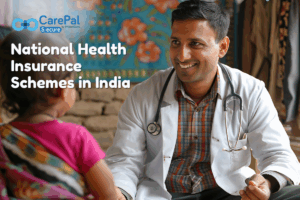Latest advances in
cancer therapy

Cancer is a disease with a long history running parallel to human evolution. It was Greek physician Hippocrates who coined the term cancer due the appearance of tumors with veins resembling a crab. Despite each generation’s attempts to conquer cancer therapy with new treatments, it remains a persistent challenge. In the last few years, the advances in cancer treatment have been immense. The survival rate of cancer patients reflects these advancements, especially when the cancer is diagnosed early.
However, cancer is an ever-evolving phenomenon and hence scientists and doctors are engaged in continuous research and development to come up with new and more effective ways of treating cancer. Knowing about these can make a lot of difference for patients.

Some of the newest innovations in cancer treatments include the following:
1. Immunotherapy Treatments also known as immune oncology treatment is a treatment which uses body’s immune system to fight cancer cells.
- Immune Checkpoint Inhibitors: In this therapy, the drugs targeting immune checkpoints were used to help the immune system to recognize and kill the cells for the specific cancer. Research now focuses on combining these inhibitors with some other therapies to achieve better efficacy without encountering resistance.
- CAR T-cell Therapy: The therapy employs a specific type of white blood cell, known as T cells. Scientists engineer these cells in laboratories to bind and kill cancer cells. This therapy is especially useful for blood-related cancers.
- Cancer Vaccines: Designed to prevent cancer or improve the immune response against existing tumors. The cervical cancer vaccine is the best known example for a cancer vaccine, but now scientists have developed the vaccines for unique mutations in cancer patients’ tumors.
2. Targeted therapies and Precision medicine: This is a treatment in which proteins and other markers of cancer cells are identified so that the medicine only hits the cancer cells and leaves the healthier cells intact. This contrasts with traditional chemotherapy, which attacks all rapidly dividing cells. It makes targeted therapies both more effective and much less likely to cause harsh side effects. Some of the well know targeted therapies are:
- Gene Editing and CRISPR: CRISPR or Clustered Regularly Interspaced Short Palindromic Repeats is a gene editing technique that modifies the DNA of cells. These modified DNA cells are then used to attack the genetic mutation that causes cancer. In cancers such as breast cancer, scientists know with great surety the genetic mutation that leads to the cancer.
- RNA-based Therapies: RNA-based cancer therapies introduce the shared markers from the tumors to the patient’s immune system. The objective is for the patients’ immune system to recognize the cancerous cells and eliminate them.
- Targeting DNA Repair Pathway in cancers which do not have an active mechanism for DNA repair, a drug may use the inhibitor of the DNA repair pathways to prevent DNA repair in the tumor cells while allowing standard therapy like radiotherapy to more effectively attack the cancer.
- Liquid Biopsies: Biopsy is an invasive process which surgically removes a portion of cancerous tissues for analysis by doctors. This process is painful and is also known to aggravate spread cancer. By analyzing blood, liquid biopsy offers a noninvasive alternative to traditional biopsies, providing the same insights.
- Multi-Cancer Early Detection (MCED): Since cancer can occur in almost all parts of the human body, there are multiple screening tests required to do a full cancer screening of a person. This can be time consuming and painful. Multi Cancer Early Detection techniques use single blood tests to check for multiple cancers.
- Targeted Radiotherapy: Radiopharmaceuticals link radioactive isotopes with molecules that specifically bind to cancer cells and thus transport the radiation to tumors. In more recent years, the FDA approvals have also included such radiopharmaceuticals as lutetium Lu-177 for prostate cancer, so the number of precision drugs that treat metastatic cancers keeps growing.
- Artificial Intelligence/Machine Learning: AI/ML is used to enhance the diagnosis of cancer, predict how patients will probably respond, and discover new candidate drugs. Imaging, for instance, uses AI techniques to scan and analyze images more accurately than traditional methods, and tumor genomics form the basis of ML models used to recognize potential drug targets.
- Targeting Tumor Microenvironment: Scientists are exploring therapies that modulate the tumor microenvironment, which comprises immune cells, blood vessels, and other cells that surround tumors. Drugs that target specific microenvironment factors, such as TGF-beta and hypoxia-inducible factors (HIF), have been demonstrated to make tumors more susceptible to therapy.
- Epigenetic Therapies: Now, new drugs targeting epigenetic changes in cancer cells, which alter gene expression without changing the DNA sequence, are under development. Epigenetic therapies are currently being studied for cancers that have become resistant to other treatments, as they could help reprogram cancer cells to make them more responsive to standard therapies.
Advances herald a shift toward personalized, precise, and targeted therapy for cancer. Clinical research remains crucial in validating those approaches, many of which likely will become routine in cancer practice within the next few years. These new and latest advances in cancer treatment, however, are expensive and typically not covered in most insurance plans. Hence, before opting for the same, it is necessary the patient and the family understand the full cost implications and take a call accordingly.
Frequently Asked Questions
Good digestion ensures proper nutrient absorption, strengthens immunity, and boosts energy levels. It also prevents complications like weight gain, hormonal imbalances, and chronic diseases.
Consider the insurer’s financial stability, claims process, coverage terms, and inclusion of services like teleconsultation and diagnostic tests. These factors ensure smooth access to care and timely claim settlements.
Poor digestion can cause nutrient deficiencies, weakening the immune system and leading to fatigue. It’s also linked to weight gain, diabetes, and mental health issues.
Adopt a balanced diet rich in fiber and fermented foods, quit smoking, avoid alcohol, exercise regularly, and manage stress to support healthy digestion.
It offers comprehensive benefits, including hospitalization, diagnostic tests, and teleconsultation, with a reduced waiting period for pre-existing conditions and cashless treatments.
Hi, my name is Om, and I am a developer at Carepal Secure. With a strong passion for technology and innovation, I enjoy creating effective solutions and learning new skills to enhance my expertise. My journey in development has been both challenging and rewarding, allowing me to grow professionally while contributing meaningfully to the projects I work on.












